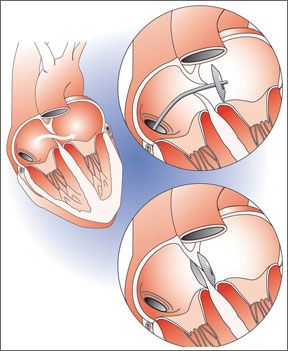Repairing a hole anywhere in the heart would seem to be an obvious decision, an important procedure to help ensure a healthy cardiovascular system. But a study led by Cleveland Clinic researchers suggests that in the case of patent foramen ovale (PFO), it may be best to "leave well enough alone." A PFO is an opening between the upper two chambers of the heart. It actually forms in-utero to allow blood to bypass the lungs before you take your first breath. It should close at the time of birth, but in about one out of four people it doesnt. In adults PFO has been associated with stroke, migraine headache and a condition called platypnea-orthodeoxia, in which blue blood bypasses the lungs and leads to lower oxygen levels in the blood. How to treat patients with one of these problems has been unclear, with options including the use of blood thinners or catheter-based closure. When a patient has no problems attributable to the PFO, treatment is even less obvious. A PFO is usually only discovered when a patient is undergoing heart surgery or during a heart imaging procedure, such as an echocardiogram. In the Cleveland Clinic study, published in the July 15 issue of the Journal of the American Medical Association, researchers examined more than 2,300 records of patients who had a PFO incidentally discovered during cardiothoracic surgery during a 10-year period. Those patients who had a PFO repaired experienced a stroke rate of about 2.8 percent, compared to 1.2 percent among those who had a PFO but did not have it repaired.
To continue reading this article or issue you must be a paid subscriber.
Sign in






